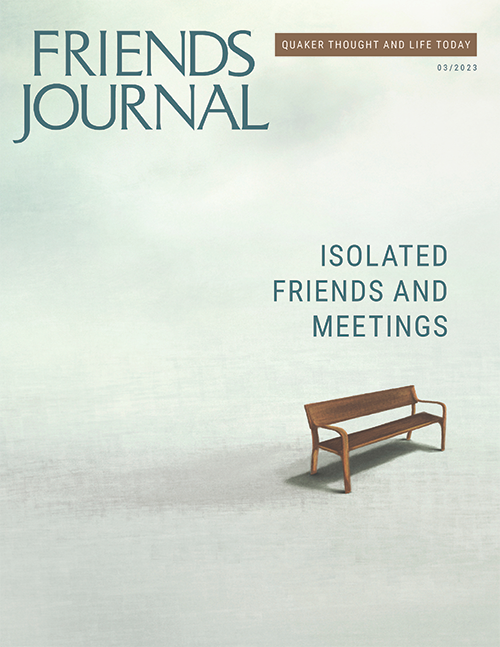Over the past three years, my local Quaker meeting has supported a man who, in 2012, was convicted on federal charges of crossing state lines to solicit sex from a minor female. In this instance, he engaged with an undercover FBI officer carrying out a sting operation, so no child was actually harmed. He also confessed to the federal crime of possessing and sharing child pornographic images via his computer, though prosecutors agreed not to pursue those charges in his plea agreement. With release from prison approaching, in mid-2019 he appealed to us for spiritually grounded support for himself and his family as he was repatriated into society, and expressed his hope to rejoin in worship with this Friends meeting.
His request represented a genuine moral dilemma.
He says that he has never actually “touched” a child. He defined his issue as sex addiction, and pointed to completion, while in prison, of a self-study using 12-step addiction recovery materials. After his release, he entered professional counseling to address his issues. In one letter to the meeting, he stated that he believed he was “cured” of the issues that brought about his imprisonment.
The meeting community underwent a wrenching yet robust, three-year-long discernment process, calling on professionals that understand child sexual predation to aid in understanding the issues and risks involved. During this time, the man and his family were tenderly cared for by those who were clear to join them in worship and fellowship. Ultimately, the meeting opened its First Day worship to him in 2022—first in a hybrid setting and, more recently, admitting him to attend in the meetinghouse. He is always accompanied by both a court-mandated, trained escort and a meeting-designated monitor; and he is barred from entering spaces occupied by the children. The meeting’s precautions come as close as possible to eliminating the risk of further harm.
What precautions and plans cannot do, however, is prevent the involuntary, visceral reaction his presence triggers in those who have been victims of psychological and physical abuse, including child and adult sexual abuse. In my case, the circumstances around his arrest and prosecution trigger PTSD, a physiological stress response over which I have little control given my personal history as an abuse survivor. I flush, begin shaking all over, my heart races, my blood pressure skyrockets, and have to stop everything I am doing to collect myself.
A number of Friends, including some with no personal history of abuse, have for various reasons discerned that they must separate from the meeting over this issue. In my case, I carry no doubt that I forgive him, but I cannot, at this time, find my way to trust him or his words, nor to feel safe again inside this community of people that I love.
A primary issue when considering sex crimes perpetrated—or contemplated—against children is the tendency to identify the essence of the offender with their actions. There is a strong sense that we view whom we each are attracted to, sexually, as an innate part of our identity as a person. In the case of many other criminal offenses, we can, both cognitively and emotionally, separate the crime from the soul-sense of the person who committed it, and our fear of re-offense is not visceral. But when a crime committed is one that forever alters the self-concept of its victim, and that victim is among those who have the least chance of resisting or defending themselves, finding that psychic separation becomes infinitely more difficult. It is particularly so if one carries past wounding that reverberates with the pain and soul-level diminishment that is carried by the victims of child sex abusers.
So what are Friends to do when a single life, broken in a very specific way, is laid at our feet? And the nature of the brokenness is fraught with deep misunderstanding, and can inspire fear? When differing levels of direct and indirect experience with the underlying issues greatly influence how we, as individuals within the community, hold the tensions around them?
Is forgiveness framed only by an expectation that all within the community will come to agree upon a single discerned response, whatever that is?
Or, is there the capacity in Quaker discernment and the ideal of forgiveness to respect, as grounded in the Light, both the community response and the discernment of individuals who find that they must step away—and by doing so create space for the wounded soul seeking support?
Lived experience tells me that both outcomes are equally grounded in the Light—as leadings of Spirit.




Please refer to the experiences of those people in Rwanda who are forced by circumstances to interact with the people they saw murder their loved ones. They may offer new options. We are all formed (and deformed) by our experiences, and must go on in the state we are in.
May blessings fall upon you.